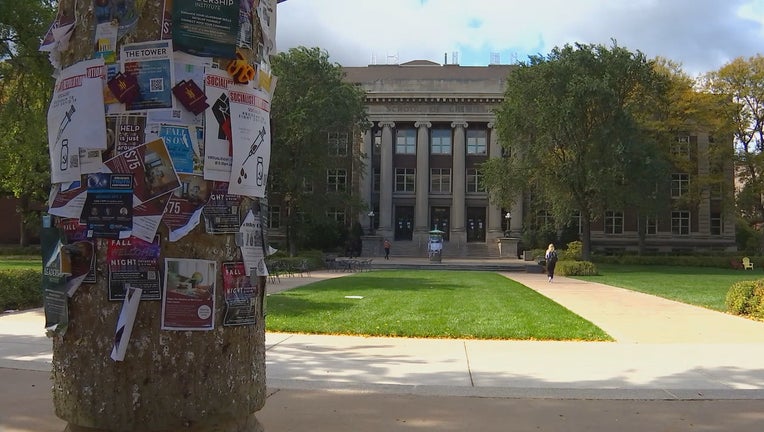Gabel discusses pandemic challenges facing the University of Minnesota

The University of Minnesota campus amid the COVID-19 pandemic. (FOX 9)
MINNEAPOLIS (FOX 9) - The heartbeat of student activity on the University of Minnesota campus gives a much different pulse this fall amid the pandemic. Enrollment is down from last year, but President Joan Gabel says teaching and learning is still a top priority.
“We are working them just as hard in the classroom,” said Gabel. “They are taking the same courses. It is the same faculty. So, from an education point of view, we didn’t miss a beat.”

Gabel discusses pandemic challenges facing the University of Minnesota
The heartbeat of student activity on campus gives a much different pulse this fall amid the pandemic.
FOX 9’s Tim Blotz moderated a webinar with University of Minnesota President Joan Gabel at the invitation of the Minneapolis Regional Chamber of Commerce. During the event, Gabel discussed how the university has adapted amid the pandemic, but still faces other issues.
Gabel says she worries about mental health. Surveys by the American Psychological Association show 41 percent of college students suffer from anxiety and 36 percent battle depression. Gabel worries the pandemic has greatly expanded these challenges.
“We have done just a few things operationally,” said Gabel. “We have given our community advisors and faculty and staff additional training. We have invested in telehealth and other technologies so that students can receive support. We can triage that support and get them to the right level of support, even remotely.”
The university, however, faces infrastructure issues too. The stalled bonding bill in the state Legislature is holding up critical improvements to the Institute for Child Development, which holds the country’s leading child psychology program. Also delayed are the upgrades to the chemistry labs at Smith Hall.
“Those of you who took chemistry at the school, it is unchanged,” said Gabel. “And we can teach chemistry so much better with space that now uses team-based learning and technology. It would allow us would allow us to distribute what we teach in those labs.”
It’s one of the many challenges as the university tries to prepare a unique generation of students during a unique time.
“They are scrappy,” said Gabel. “They are resilient. They have grit. They have had everything that they thought they were supposed to do upended, they’re coming to school anyway. They’re progressing through school anyway. I think you’re going to find an incredible group of young, new talent when they enter the workforce as they graduate out of this.”

